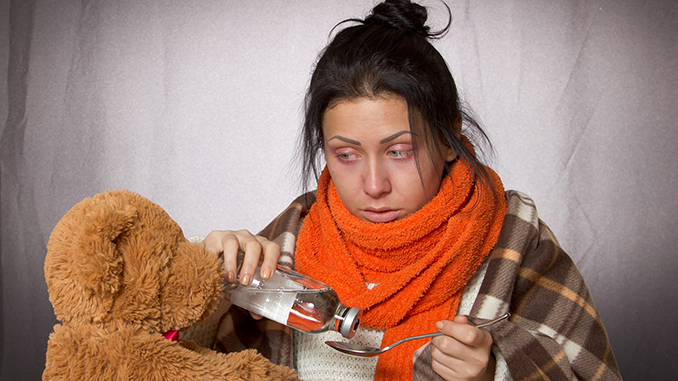As we move through November it’s important to cover how caregivers assist flu patients in our community so we can all help stop the spread. If you’re fighting the flu this year, it will take more than just finding comfort from your favourite teddy bear!
Perhaps you may have been lucky to avoid catching the flu this season, but the flu can still have an impact on your life. You may find yourself looking after someone who has the flu.
There’s no need for people in Thorold and surrounding areas to panic, the team at Henderson’s Pharmacy offers our community the following tips on what to do for the flu patient and what to do for yourself as a caregiver.
Henderson’s Pharmasave
Caregivers Assist Flu Patients
When you are taking care of the flu patient
Make a sick room, if possible. Keeping the person with flu in a separate room can help keep the flu from spreading to others in the family.
Keep the sick person’s personal items (their own drinking glass, towel, face cloth, toothbrush, etc.) separate from everyone else’s. Each sick person should have their own personal items.
Avoid being face-to-face with the person with the flu. Try to spend the least amount of time possible in close contact with the person. If you are carrying a child with the flu, hold them so their chin rests on your shoulder. That way, their cough will not be in your face.
Wash your hands often using proper hand washing technique. Wash your hands after touching the sick person, after handling their tissues, laundry or other personal items, before you eat, and before and after touching your eyes, mouth, or nose.
Clean and disinfect hard surfaces (e.g., door knobs, light switches, bedside tables, counters, phones).
Know what complications to look for. Most people with the flu will feel better in a few days. However, be aware of flu complications that can occur such as pneumonia. This is especially important when caring for someone who has a medical condition that puts them at risk for complications. To monitor for this, take their temperature every day. You can also watch out for signs such as:
- A fever that returns after feeling better
- Difficulty breathing, shortness of breath, or wheezing
- Coughing up blood
- Purple or bluish lip colour
- Chest pain
- Difficult to wake up, unusually quiet, or strange thoughts or actions
- New onset of diarrhea, vomiting, or abdominal pain
Symptoms of dehydration such as dizziness when standing, low amount of urine, or dry mouth or eyes. Infants and toddlers may produce few or no tears when crying, or have a sunken soft spot on the head.
Take care of yourself
If you have a medical condition such as asthma, diabetes, heart disease, a weakened immune system, or other conditions that put you at risk for flu complications, you should not look after people who are sick, if possible. If not, you should contact your doctor and tell them about your situation and remind them that you are at risk of flu complications such as pneumonia, bronchitis, and worsening of your condition.
Watch for signs of stress in yourself. Taking care of a sick person can be stressful, so learn ways to help reduce stress. If at any time you feel overwhelmed, don’t hesitate to ask for help or speak to a health care provider.
Read other health and wellness articles in our community blog.
Different Symptoms Between Cold | Flu | COVID-19
Copyright 1996 – 2020, MediResource Inc. All rights reserved. The contents herein are for informational purposes only. Always seek the advice of your physician or other qualified health provider with any questions you may have regarding a medical condition.

